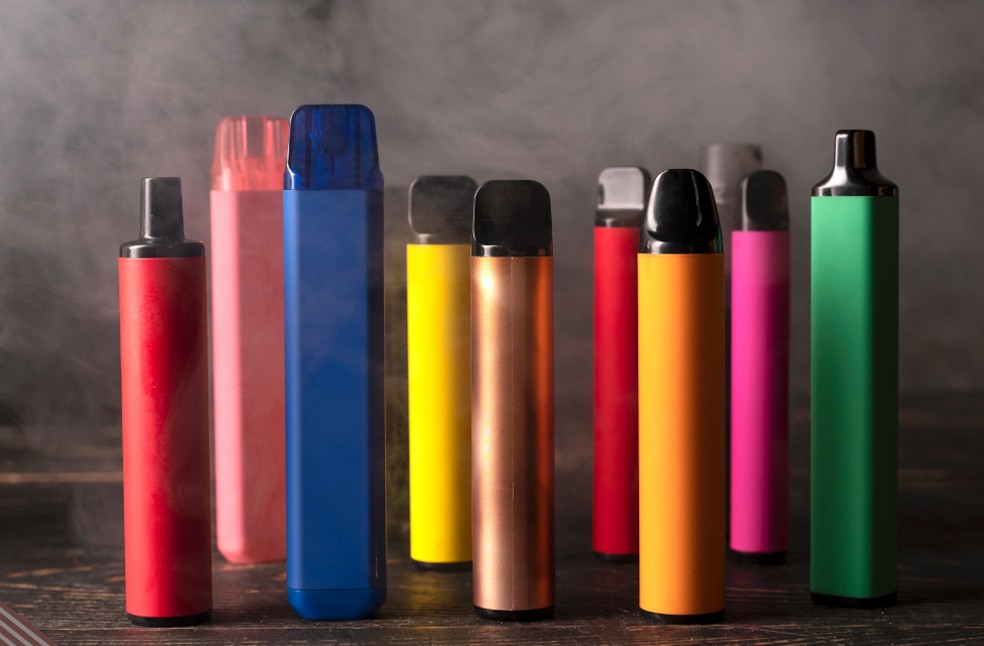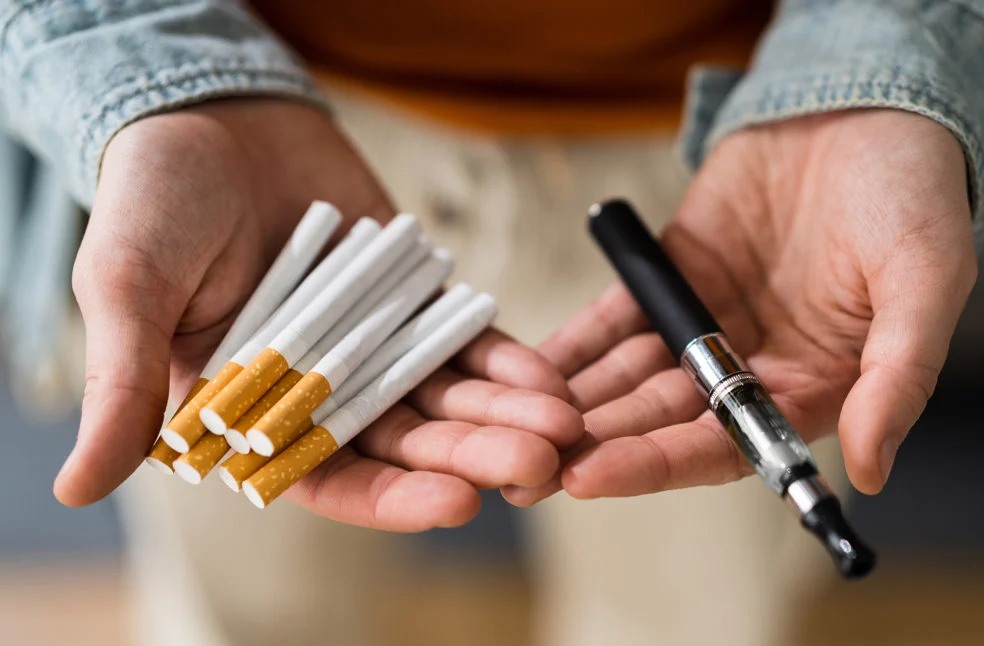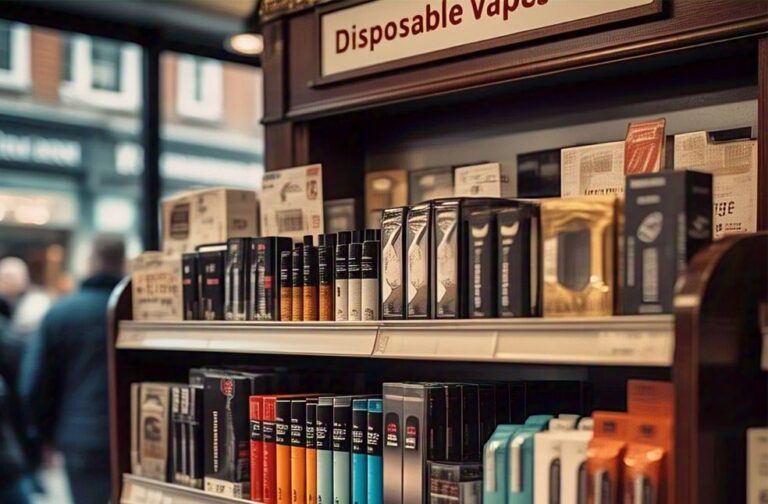London: The United Kingdom has officially enacted a nationwide ban on the sale and supply of disposable vapes starting 1 June 2025.
The measure, originally announced in January 2024, applies to all forms of retail, including online platforms and physical stores, as part of a comprehensive effort to address environmental hazards and restrict access to vaping products among children and teenagers.
This legislative move targets disposable or single-use vapes, which have grown enormously in popularity in recent years. According to UK government data, vape usage increased by more than 400 percent between 2012 and 2023. Despite their convenience, disposable vapes have been sharply criticized for their environmental impact.
🚭 From Sunday, the UK bans single-use vape sales to fight youth addiction & cut waste.
♻️ Dispose of vapes safely:
✅ Return to shops
✅ Buy reusable from trusted sellers
❌ Never bin vapes or batteries
📍 Find vape recycling: https://t.co/vOrdNLQqgq pic.twitter.com/7llI3MUYlm— Hertfordshire County Council (@hertscc) May 30, 2025
A December 2024 analysis by Material Focus revealed that an estimated 8.2 million disposable vapes are discarded or littered every week in the UK, equating to 13 every second. These items are often improperly thrown into general waste or discarded in public areas rather than being recycled.
Even when users attempt to recycle them, the government notes that disposable vapes must be disassembled by hand, making the process difficult, slow, and inefficient.
The ban aims to reduce what authorities have called an ‘inefficient use of critical resources’ that contributes to biodiversity loss. Many of these devices contain lithium-ion batteries, which can ignite fires if not properly handled.
Moreover, their materials, such as plastic, lead, and mercury pose significant threats to the environment, including the leaching of toxic substances into water systems and the poisoning of wildlife.

In addition to environmental concerns, the government seeks to curb increasing vape use among young people. NHS statistics from 2024 showed that nearly 25 percent of children aged 11 to 15 had experimented with vaping and around 1 in 10 were regular users. By eliminating access to the most popular youth-targeted product, disposable vapes the government hopes to reverse this troubling trend.
Legality and possession
Possession of disposable vapes remains legal as long as there is no intent to sell or distribute them. Retailers that sold these products before the ban must now provide recycling collection bins and ensure proper disposal of leftover stock.
Enforcement and penalties
Enforcement varies by UK region, but multiple agencies, including Trading Standards and Border Force, are empowered to inspect businesses and enforce the new rules.
- England and Wales:
Initial infractions may lead to civil sanctions such as stop notices, compliance notices, or a £200 fine. Repeat offenses could escalate to unlimited fines, up to two years in prison, or both. - Scotland:
Offenders may be issued a £200 fixed penalty, reduced to £150 if paid within 14 days. Repeated violations increase the fine by £200 each time. If not resolved through fixed penalties, the case can escalate to a £5,000 fine, two-year imprisonment, or both. - Northern Ireland:
The region does not offer civil penalties. Any breach could lead to a summary conviction in a magistrates’ court with a fine up to £5,000, and subsequent offenses may carry a two-year prison sentence.

How to identify reusable vapes
Reusable vapes, which remain legal, must be both rechargeable and refillable. This means they must have a battery and allow for replacement components such as coils or pods.
Users and retailers can verify whether a vape is legally sellable by checking the Medicines and Healthcare Products Regulatory Agency’s (MHRA) notified products list. Any nicotine-containing vape not on that list is prohibited from sale. From 1 June onwards, all single-use vapes not on the list will be removed from the market.
Public response and impact
While the ban officially took effect, it has already shown early signs of influence. A study by University College London (UCL) observed that while general vaping rates stayed consistent between January 2024 and January 2025, the use of disposable vapes dropped significantly, especially among 16- to 24-year-olds.
Their use of disposables halved, falling from 63 percent to 35 percent during that time. However, lead researcher Dr. Sarah Jackson noted that this shift may only result in a transition from disposable to reusable vapes, rather than a significant reduction in vaping altogether.

Health perspective and future regulations
Vaping is widely considered a less harmful alternative to smoking traditional cigarettes, as it avoids combustion and does not produce tar or carbon monoxide.
Still, the long-term health effects of vaping remain largely unknown. In response, the UK government is supporting a 10-year longitudinal study involving 100,000 young people to gather detailed data on the health implications of vaping.
While there is no immediate plan to extend the ban to reusable vapes, further restrictions could be on the horizon. The Tobacco and Vapes Bill, currently under review in the House of Lords, includes provisions to regulate vape flavors, packaging, and marketing strategies, to reduce the product’s appeal to children and non-smokers.
In summary, the UK government’s crackdown on disposable vapes marks a pivotal step in its dual mission to protect the environment and safeguard youth health, although it may also prompt users to migrate to longer-lasting vaping alternatives.



